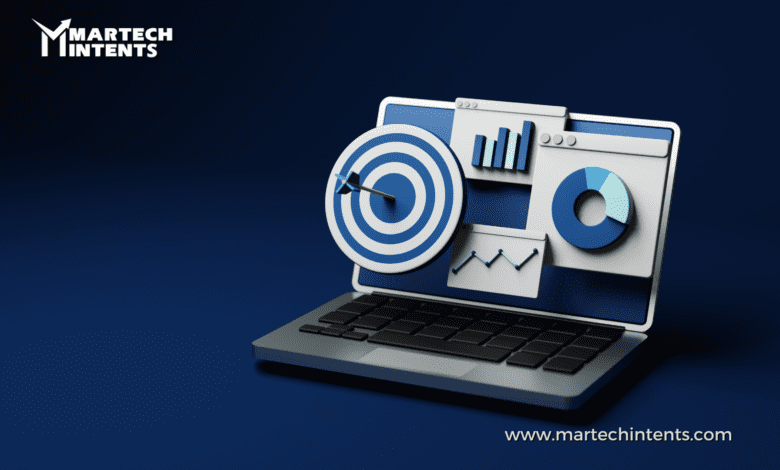Navigating the Landscape of Data Driven Marketing

Data Driven Marketing: In the dynamic and data-rich world of today’s marketing landscape, data has emerged as the cornerstone of effective decision-making and strategic growth.
Data-driven marketing, a methodology that utilizes data analytics to inform marketing strategies, has revolutionized the way businesses approach customer engagement, campaign optimization, and overall business performance.
Understanding the Essence of Data Driven Marketing
Data driven marketing is not merely about collecting and analyzing vast amounts of data; it’s about extracting actionable insights and transforming those insights into impactful strategies.
By leveraging data analytics tools and techniques, businesses can gain a deeper understanding of their target audience, identify trends and patterns, and make informed decisions that drive desired outcomes.
The Pillars of Data Driven Marketing
Data driven marketing rests on three fundamental pillars:
Data Collection: Gathering data from various sources, such as website interactions, social media engagement, customer surveys, and purchase transactions, is essential for building a comprehensive understanding of customer behavior and preferences.
Data Analysis: Employing data analytics tools to process, analyze, and interpret the collected data is crucial for extracting meaningful insights and identifying trends.
Data-Driven Decision-Making: Utilizing the insights gained from data analysis to inform marketing strategies, optimize campaigns, and personalize customer experiences is the ultimate goal of data-driven marketing.
Benefits of Embracing Data Driven Marketing
The benefits of implementing data driven marketing are multifaceted and far-reaching:
Enhanced Customer Understanding: Data provides a deeper understanding of customer demographics, interests, preferences, and behaviors, enabling businesses to tailor messaging and experiences accordingly.
Improved Customer Segmentation: Data allows for more precise customer segmentation, enabling businesses to target specific groups with relevant messaging and campaigns.
Optimized Campaign Performance: Data-driven insights inform campaign optimization, leading to increased engagement, conversion rates, and ROI.
Personalized Customer Experiences: Data enables personalized interactions, fostering stronger customer relationships and loyalty.
Data-Driven Attribution: Data analytics helps businesses accurately attribute marketing efforts to sales, providing a clear understanding of campaign effectiveness.
Strategies for Implementing Data Driven Marketing
To successfully implement data driven marketing, businesses can follow these strategies:
Establish Data Governance: Implement a data governance framework to ensure data quality, security, and compliance with privacy regulations.
Invest in Data Analytics Infrastructure: Acquire the necessary tools and technologies to effectively collect, manage, and analyze data.
Build a Data-Driven Culture: Foster a culture that values data and encourages data-driven decision-making across all levels of the organization.
Hire Data-Driven Marketers: Recruit and develop marketing professionals with expertise in data analysis and interpretation.
Continuously Test and Refine: Continuously test and refine data-driven strategies based on ongoing data analysis and performance metrics.
Examples of Data Driven Marketing Success
Businesses across various industries are reaping the rewards of data driven marketing:
- Netflix: Netflix utilizes data analytics to personalize content recommendations, resulting in increased engagement and viewership.
- Amazon: Amazon’s data-driven approach to product recommendations and targeted marketing campaigns has significantly boosted sales and customer satisfaction.
- Starbucks: Starbucks analyzes customer data to personalize the in-store experience, including menu suggestions and loyalty rewards.
- Booking.com: Booking.com leverages data analytics to tailor hotel recommendations and pricing strategies, optimizing customer bookings and revenue.
- Spotify: Spotify’s data-driven music recommendations and playlists have enhanced user engagement and increased subscriber retention.
Learn more about Measuring Martech Impact on Data-Driven Marketing
Conclusion: Data Driven Marketing – The Future of Marketing Success
Data-driven marketing is not just a trend; it’s a fundamental shift in how businesses approach marketing in the digital age.
By embracing data and transforming it into actionable insights, businesses can gain a competitive edge, optimize their marketing investments, and achieve sustainable growth in an ever-evolving marketplace.
As technology advances and data becomes even more abundant, data-driven marketing will become an indispensable tool for marketing success.




